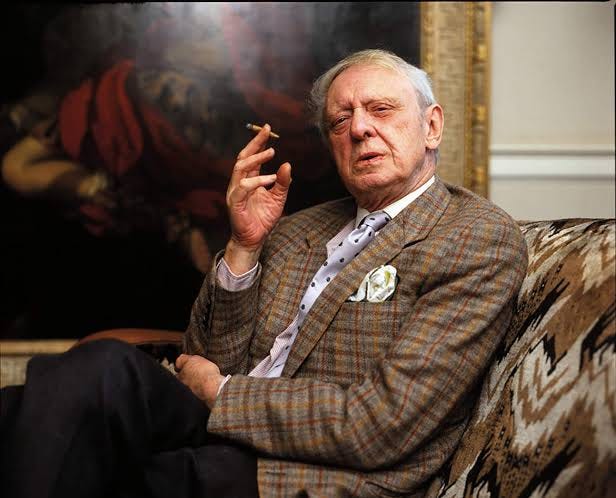The Novelist vs The AI
It turns out, Anthony Burgess once described Shakespeare the way some describe artificial intelligence.
Last week my friend Jan Herman reached out to say he’d lately been on a “(Anthony) Burgess kick,” and was reading the novelist’s biography of William Shakespeare, where he came upon a passage that I am guessing Burgess wrote in response to the notion that Shakespeare must have been a nobleman to have written with such breadth and grace:
“Any peasant can teach himself to write, and write well. Any peasant writer can, by reading the appropriate books and by keeping his senses alert, give the illusion of great knowledge of the world. The plays of Shakespeare, through the trickery of the artist, give the illusion that their creator has traveled widely, practiced all the learned professions, bent his supple knee in courts domestic and foreign. The brilliant surface suggests an erudition and an experience that need not, in fact, be there.”
There have always been novelists with arcane interests and deep expertise. Writers who have spent a lot of time at sea tend to be this way, from Herman Melville to Mark Twain, to Joseph Conrad and, heck, Tom Clancy (whose first novel, The Hunt for Red October, was published by a small military press and then found its way into the hands of President Ronald Reagan, launching his career). Science fiction writers often really know their stuff, though it’s something more fun when they don't.
But for most people, the art of fiction is like the art of acting — you don’t need to be a surgeon to play one, or to make one up, and sometimes a little distance even helps. The novelist is often a generalist — very curious about the world, but a master of no single thing. In general, an open ear, an observant eye and a developed sense for what’s important will allow a fiction writer (in any form) to create a relatable version of even the characters most removed from ordinary life. We won’t all know what it’s like to be a billionaire, President of the United States or an agent of the Mossad. But all can be relatable characters.
As I thought about the passage Jan sent me, I considered that maybe the risk in all creative writing is that an individual brings their knowledge to serve a story and its characters and the hope is, that if the descriptions of motivations ring true for the author, they will similarly work for other humans who will become a willing audience. The author accepts the huge gamble that their perspective will find accordance with others. Burgess says it’s an illusion. I say it’s a connection and that there is something in common between all of us humans that allows the perspective of one to be shared by many.
But there is, as Jan implied, something a little like AI at work here. We are talking about one person using many sources of information, from research to experience to artistic skill, to communicate to many people. One might imagine that this is what ChatGPT does in seconds.
But I think, though the two seem similar on the surface, that they are in fact opposites. The novelist uses the extent of an individual’s knowledge and ability to learn in the creative process. An AI starts with everything that everybody has ever put online (at least, accessibly) and then synthesizes around a query.
With the creative writer, then, you still have the romantic notion that an individual, through work and craft, can reach people at great remove. With the AI, you have the industrial notion of disassembling the sum of human knowledge to feed it back to those who created it, without any connection between one spirit and many.
Put another way, the AI builds new structures that can be useful while the human creative strives for connection. That difference is profound.



Great piece Michael - I have looked at AI quite a bit in relation to creativity and even got ChatGPT to create a Duran Duran musical which was acceptable. I think that there is a further differences between AI creation and human creation which is that AI does not appear to have the capacity to make a mistake that will create something new. It can only rely on what has been before so it is not going to create new ways of telling stories. In 1970 it would not have created the musical Company because it was essentially the first plotless musical and because that structure had not existed it would have had no point of reference.
AI is a useful tool for creatives in the same way that a word processor or CAD have been but does it really have ideas that connect?
This is really interesting. Good one, Michael!